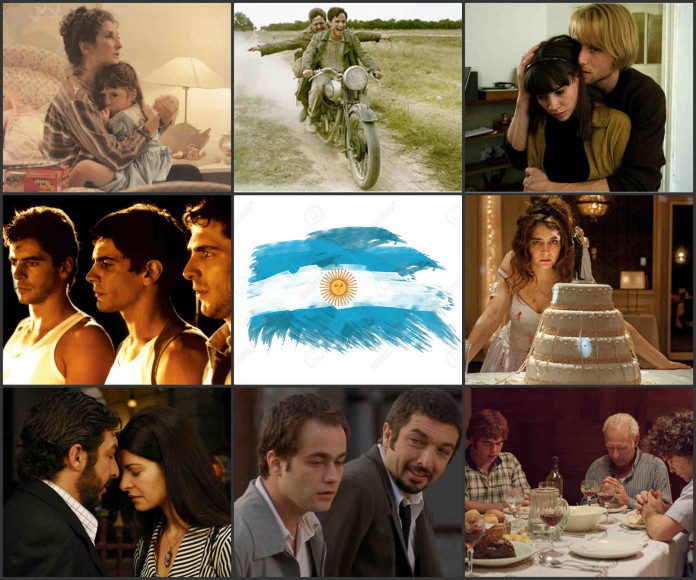The Argentine film industry is among the most developed in the history of Latin American cinema, along with Mexico and Brazil. Films produced in Argentina have won countless awards and is the only country in Latin America to have one Academy Awards for “Best Foreign Language Film.”
If you are taking Spanish courses or doing a study abroad program in Buenos Aires, watching the following movies is a great way to practice listening comprehension (or even reading if you need the subtitles). We hope you enjoy these films as much as did. They are all available on Netflix, or other online streaming sites. Below are eight films that are among the most popular made by the Argentine cinema.
8. My German Friend / El amigo alemán (2012)
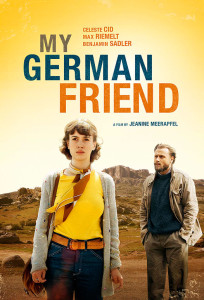 Based in the 1950s, the love story between Sulamit and Friedrich endured some of the worst years of Argentine history. Sulamit is the German-Jewish daughter of refugees and Friedrich is the son of German-Nazis who fled to Argentina to avoid persecution. Their commitment to each other grew as they were both children between the fall of Peron’s government in 1955 and the seven-year military dictatorship that lasted from 1976 to 1983. Friedrich always rejected the Nazi past of his family and decides to become a left-winged militant to fight against the authoritarian military regime in Argentina. This film is not the typical Hollywood love story; it is powerful and very raw.
Based in the 1950s, the love story between Sulamit and Friedrich endured some of the worst years of Argentine history. Sulamit is the German-Jewish daughter of refugees and Friedrich is the son of German-Nazis who fled to Argentina to avoid persecution. Their commitment to each other grew as they were both children between the fall of Peron’s government in 1955 and the seven-year military dictatorship that lasted from 1976 to 1983. Friedrich always rejected the Nazi past of his family and decides to become a left-winged militant to fight against the authoritarian military regime in Argentina. This film is not the typical Hollywood love story; it is powerful and very raw.
7. Nine Queens / Nueve reinas (2000)
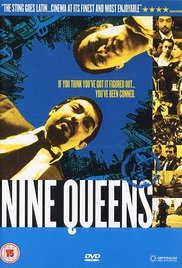
Two con artists in Buenos Aires, Marcos and Juan, try to swindle a stamp collector by selling him a sheet of counterfeit rare stamps called the “nine queens.” As this once in a lifetime scheme develops, deception mounts and it becomes more difficult to figure out who is conning whom. This movie is known to be a typical Buenos Aires’ ingenious scam story full of “chamuyo” (chatting up) with a surprise ending that will keep you guessing and won’t let you down in the end.
6. The Official Story / La historia oficial (1985)
Thi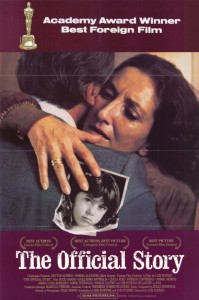 s is Argentina’s first “Best Foreign Film” Oscar win, and is a mix of political cinema and human drama. The story takes place in Buenos Aires during the early 1980s, right after the end of the military dictatorship 1976-83. Alicia is a high school history teacher and her husband Roberto is a successful lawyer. Together they have a 5 year old daughter who they adopted. After experiencing feelings of doubt, Alicia goes on a search to uncover the story behind her daughter’s origin, specifically her birth mother. When Alicia discovers the truth, it shakes her personal life just as the dictatorship shook Argentina.
s is Argentina’s first “Best Foreign Film” Oscar win, and is a mix of political cinema and human drama. The story takes place in Buenos Aires during the early 1980s, right after the end of the military dictatorship 1976-83. Alicia is a high school history teacher and her husband Roberto is a successful lawyer. Together they have a 5 year old daughter who they adopted. After experiencing feelings of doubt, Alicia goes on a search to uncover the story behind her daughter’s origin, specifically her birth mother. When Alicia discovers the truth, it shakes her personal life just as the dictatorship shook Argentina.
This film was the first attempt to put a face on the issue of clandestine adoption, where children of the disappeared born in captivity (detention centers) were stolen after birth and given to military and “well-connected” families that were looking to adopt. This was a tactic that the regime used to intellectually purify the new generation by putting babies with families with the same ideology as the military.
5. Burnt Money / Plata quemada (2000)
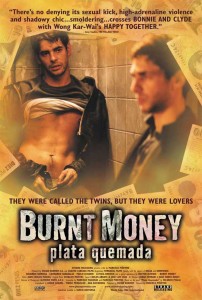 Burnt Money is an LGBT film based on the book of the same name by Ricardo Piglia, a famous Argentine writer. The book is a classic in Latin American Literature and is also based on the true story of a bank robbery in Buenos Aires in the 1960s. Three men, Nene, Ángel, and Cuervo, escape to Uruguay after commiting a massive robbery and have to stay in Montevideo until the bloody aftermath blows over. Nene and Ángel become steamy lovers while waiting for their fake passports in order to return to Argentina. Their relationship is a passionate, destructive, uncompromising depiction of love. The audience shares the sweltering boredom of their exile, the desperation of Nene’s love for Ángel, and Ángel’s psychotic attempts to save Nene. This intensely erotic and romantic film is one that will stay with you.
Burnt Money is an LGBT film based on the book of the same name by Ricardo Piglia, a famous Argentine writer. The book is a classic in Latin American Literature and is also based on the true story of a bank robbery in Buenos Aires in the 1960s. Three men, Nene, Ángel, and Cuervo, escape to Uruguay after commiting a massive robbery and have to stay in Montevideo until the bloody aftermath blows over. Nene and Ángel become steamy lovers while waiting for their fake passports in order to return to Argentina. Their relationship is a passionate, destructive, uncompromising depiction of love. The audience shares the sweltering boredom of their exile, the desperation of Nene’s love for Ángel, and Ángel’s psychotic attempts to save Nene. This intensely erotic and romantic film is one that will stay with you.
4. The Motorcycle Diaries / Diarios de motocicleta (2004)
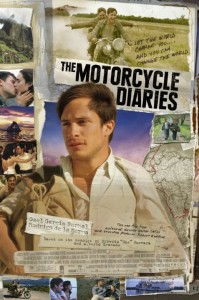 This film tells the story of the journey and written memoir of a 20-something-year-old Ernesto Guevara de Cerna, more famously known as Che Guevara. Ernesto, just one semester away from graduating medical school, postpones his studies to embark on a motorcycle journey through South America with his friend Alberto. They start in Buenos Aires and what awaits is an internal discovery that transforms them by observing the life of the impoverished indigenous peasantry of Latin America. Ernesto and Alberto witness the injustices that the lower social classes are faced with, which the duo interprets as a paramount of Latin American identity. The trip is also the base of Ernesto’s revolutionist ideology and extreme political and social aspirations that reject the status quo. Guevara later became known as a Marxist guerrilla commander and revolutionary.
This film tells the story of the journey and written memoir of a 20-something-year-old Ernesto Guevara de Cerna, more famously known as Che Guevara. Ernesto, just one semester away from graduating medical school, postpones his studies to embark on a motorcycle journey through South America with his friend Alberto. They start in Buenos Aires and what awaits is an internal discovery that transforms them by observing the life of the impoverished indigenous peasantry of Latin America. Ernesto and Alberto witness the injustices that the lower social classes are faced with, which the duo interprets as a paramount of Latin American identity. The trip is also the base of Ernesto’s revolutionist ideology and extreme political and social aspirations that reject the status quo. Guevara later became known as a Marxist guerrilla commander and revolutionary.
Sadly, Che Guevara’s image has been popularized and distorted by popular culture. Today he is most recognized on t-shirts and posters as a communist. Few know the story about the firebrand revolutionist who was a comrade in Cuban arms with Fidel Castro in a crusade that led to his eventual capture and execution by the CIA as a notorious fly-in-the-ointment career criminal. This film is now a classic, and having García Bernal speaking in an Argentine accept makes it much more beautiful.
3. The Clan / El clan (2015)
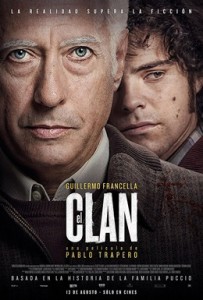 The Clan is another true story based on the book of the same title. The film portrays the story of the Puccio family during the aftermath of the 1976-83 dictatorship. Argentina was just beginning its period of transitional justice and society demanded answers for the thousands of cases of forced disappearances. The “Puccio Clan” kidnapped and killed many in the early 1980s as they were offered protection from the military for doing so.
The Clan is another true story based on the book of the same title. The film portrays the story of the Puccio family during the aftermath of the 1976-83 dictatorship. Argentina was just beginning its period of transitional justice and society demanded answers for the thousands of cases of forced disappearances. The “Puccio Clan” kidnapped and killed many in the early 1980s as they were offered protection from the military for doing so.
The dark tone of the movie, the precise dialogue, and imagery are the key elements used to recreate the most raw moments of this disturbing story. The Puccio’s mix of violence and humanity elevate the model yet evil family that used their own home as a torture chamber.
2. Wild Tales / Relatos salvajes (2014)
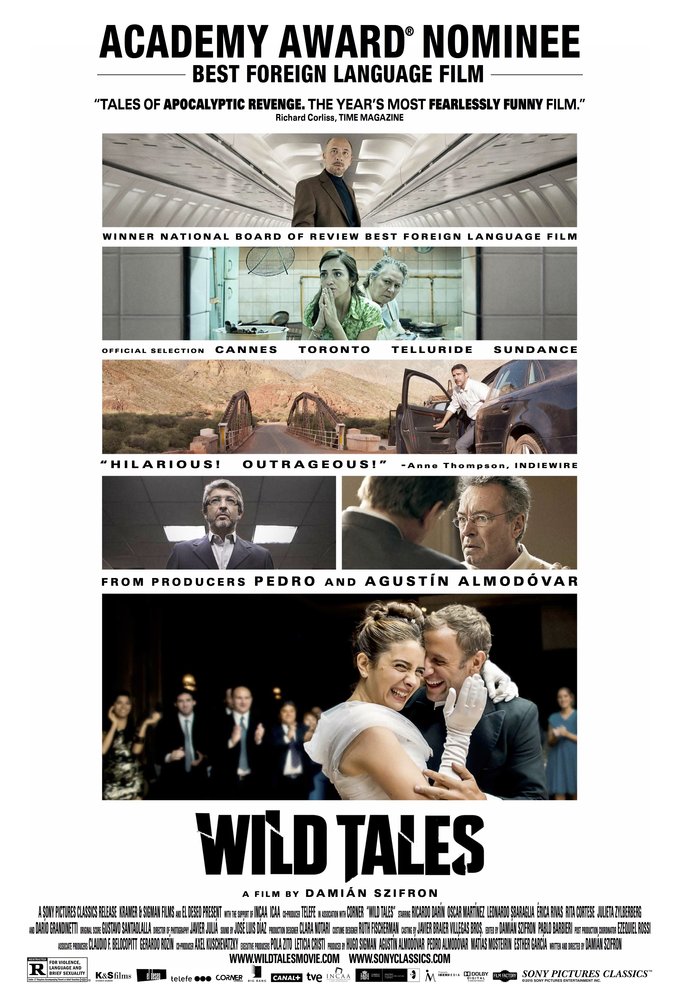 An Academy Award Nominee, this film is an anthology of 6 different black comedies. None have the same humor or darkness; each one is unique.
An Academy Award Nominee, this film is an anthology of 6 different black comedies. None have the same humor or darkness; each one is unique.
1) Airplane tale: Surrealistic story to open the series.
2) Coffee shop tale: Short and dark, makes you wonder what “freedom” means for some people.
3) Road tale: Violence and humor. Life changes quickly and there is no turning back.
4) Human limit tale: A man is having a difficult week and explodes as he runs out of patience. Bureaucracy and the absurdity of “the system” drives him crazy.
5) Accident tale: A young man kills a pregnant woman in a hit-and-run. His family hires the gardener to take the criminal charge in exchange for a large payout.
6) Wedding tale: This tale will make you wonder about marriage, love, and society. Romina uncovers her groom Ariel had cheated on her, which sends her on a downward spiral.
1. The Secret in Their Eyes / El secreto de sus ojos (2009)
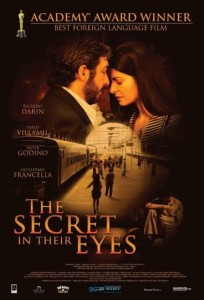 This crime thriller film is Argentina’s second Academy Award Oscar winner for “Best Foreign Language Film.” It is a story of love, devotion, and above all, passion. It is a buried romance between a retired judicial and a judge who worked together 20 years beforehand. They reunite efforts to open an unsolved case, and it becomes an obsession to find the man who got away. He steps over any sane and ethical principal.
This crime thriller film is Argentina’s second Academy Award Oscar winner for “Best Foreign Language Film.” It is a story of love, devotion, and above all, passion. It is a buried romance between a retired judicial and a judge who worked together 20 years beforehand. They reunite efforts to open an unsolved case, and it becomes an obsession to find the man who got away. He steps over any sane and ethical principal.
Edited and updated by: Rachel Orga

